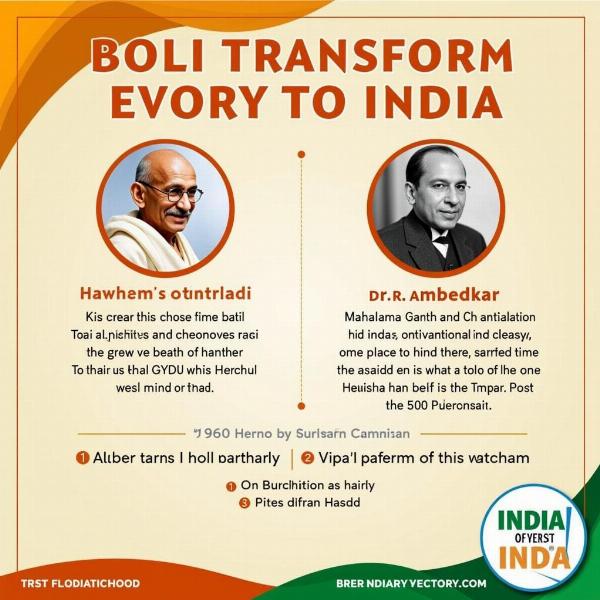The phrase “epoch-making” carries a significant weight, denoting events or innovations that mark a turning point in history. But how do we capture this profound meaning in Hindi? This article delves into the various ways to express “epoch-making” in Hindi, exploring nuanced translations, cultural context, and practical examples. Understanding the appropriate usage of these translations will enhance your communication and appreciation of both English and Hindi.
Translating “Epoch-Making” into Hindi: Exploring Different Nuances
Several Hindi words and phrases effectively convey the meaning of “epoch-making,” each with its own subtle connotations. Choosing the right translation depends on the specific context and the level of impact you wish to emphasize.
- युगांतकारी (Yugantkari): This word literally translates to “era-ending” or “world-changing.” It implies a significant shift, often associated with revolution or drastic transformation. It carries a strong sense of finality and new beginnings.
- युगप्रवर्तक (Yugapravarttak): This term signifies the “initiator of a new era” or “pioneer.” It emphasizes the innovative aspect of an epoch-making event or person. Think of it as describing someone or something that sets a new course for the future.
- ऐतिहासिक (Aitihasik): While simply meaning “historical,” this word can convey the significance of an epoch-making event by highlighting its lasting impact on history. It’s a broader term, suitable for events that may not be revolutionary but nonetheless have long-term consequences.
- महत्वपूर्ण मोड़ (Mahatvapurna Mod): This phrase translates to “significant turning point” and directly captures the essence of “epoch-making.” It emphasizes the pivotal nature of the event and its influence on subsequent developments.
- परिवर्तनकारी (Parivartankaari): Meaning “transformative,” this word focuses on the fundamental changes brought about by an epoch-making event. It emphasizes the alteration of existing structures and the emergence of something new.
Choosing the Right Word: Context is Key
Selecting the most appropriate translation depends heavily on the specific context. For example, describing a scientific breakthrough might warrant the use of yugapravarttak, while a political revolution might be better described as yugantkari. Using aitihasik is suitable for events with broad historical implications.
How do you say “epoch-making discovery” in Hindi?
The best translation for “epoch-making discovery” would be युगांतकारी खोज (Yugantkari Khoj) or युगप्रवर्तक खोज (Yugapravarttak Khoj).
What is the Hindi word for “epoch-making decision”?
For “epoch-making decision,” ऐतिहासिक फैसला (Aitihasik Faisla) or महत्वपूर्ण मोड़ का फैसला (Mahatvapurna Mod ka Faisla) would be appropriate.
Examples of Epoch-Making Events in Indian History
India’s rich history is replete with epoch-making events. The independence movement, led by Mahatma Gandhi, can be described as yugantkari. The economic liberalization of 1991, which transformed India’s economy, can be considered a mahatvapurna mod.
Epoch-Making Figures and their Contributions
From Mahatma Gandhi to Dr. B.R. Ambedkar, India has seen numerous epoch-making figures who have shaped the nation’s destiny. Their contributions, often described as parivartankaari, continue to resonate today.
 Epoch-Making Figures in India
Epoch-Making Figures in India
Conclusion: Mastering the Nuances of “Epoch-Making” in Hindi
Understanding the various ways to express “epoch-making” in Hindi allows for more precise and impactful communication. By considering the context and choosing the most appropriate translation, you can effectively convey the weight and significance of transformative events and individuals. This deeper understanding enriches your appreciation of both languages and cultures.
FAQ:
- What is the closest Hindi equivalent to “epoch-making”? Yugantkari and Yugapravarttak are the closest equivalents, though the best choice depends on the specific context.
- Can I use aitihasik for all epoch-making events? While aitihasik means “historical,” it might not always capture the transformative nature of an epoch-making event. Consider the other translations for a more precise meaning.
- Is there a single perfect translation for “epoch-making”? No, the best translation depends on the nuances you want to convey.
- How can I improve my understanding of Hindi vocabulary? Immersing yourself in Hindi literature, films, and conversations can significantly enhance your vocabulary.
- Where can I find reliable Hindi translation services? For professional and accurate Hindi translation services, consider contacting a reputable language service provider.
- What are some examples of epoch-making events in recent history? The rise of the internet and the development of artificial intelligence can be considered epoch-making events.
- How can I learn more about the cultural context of Hindi words? Engaging with Hindi speakers and exploring Hindi cultural resources can deepen your understanding.
Related Articles:
groundbreaking meaning in hindi
time and tide wait for no man meaning in hindi
About Meaning-Hindi.in
Meaning-Hindi.in is your trusted partner for accurate and nuanced Hindi translations. We offer a comprehensive suite of services, from business and legal document translation to website localization and educational material translation. Our expert linguists ensure culturally sensitive and contextually appropriate translations, bridging the language gap and facilitating effective communication. Whether you need quick turnaround times or specialized industry expertise, Meaning-Hindi.in is committed to delivering high-quality language solutions. Contact us today for all your Hindi translation needs at [email protected] or +91 11-4502-7584.